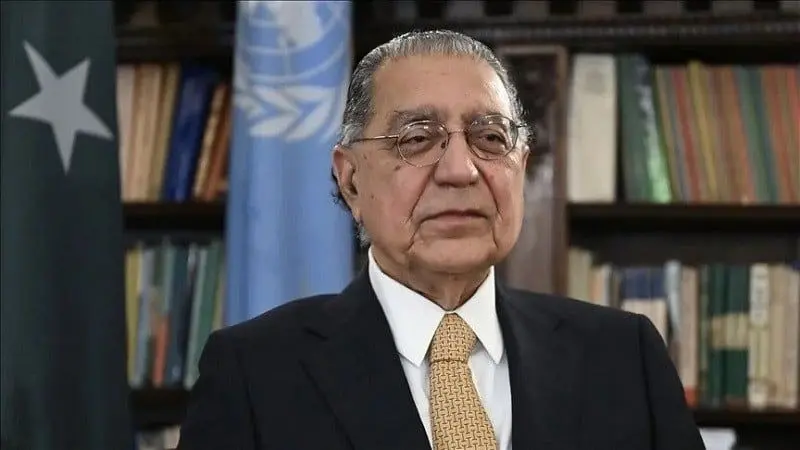WNAM REPORT: A top Pakistani diplomat has called for resolving the conflict in Yemen through “effective diplomacy and a collective response”, noting that it had graduated from the local to the regional and ultimately a crisis with global implications.
Speaking in the United Nations Security Council on Thursday, Ambassador Munir Akram, permanent representative of Pakistan to the UN, warned that resumption of military operations will further exacerbate the conflict.
The crisis in Yemen, which worsened in 2014 after Houthi rebels (known officially as Ansar-Allah) seized the capital, Sanaa, has been marked by complex political and military tensions. More than 17 million people – half the country’s population – remain dependent on humanitarian assistance and protection.
The Pakistani envoy said the progress made at the December 2023 negotiations must be preserved and consolidated, ensuring the full implementation of commitments toward lasting peace.
Supporting the ongoing mediatory efforts by the UN Special Envoy for Yemen, Hans Grundberg, Ambassador Akram said he shared his view that the roadmap remains a viable path towards a nationwide ceasefire, a structured political process, and addressing critical economic and humanitarian challenges facing the strife-torn country.
While welcoming the release of the crew of the seized vessal ‘Galaxy Leader’, he strongly condemned the arbitrary detention of UN personnel and the staff of international and national NGOs and diplomatic missions by Ansar-Allah.
“We are appalled at the tragic death of a World Food Programme staff member in Houthi custody in Saada and extend our deepest condolences to his family and loved ones,” the Pakistani envoy said.
“These actions are a blatant violation of international humanitarian law,” he added.
Ambassador Akram urged the international community to ensure the safety and security of UN personnel and called for accountability for such actions. He also demanded the immediate and unconditional release of all detained UN personnel.
Referring to Yemen’s acute humanitarian crisis, he said while 17 million people, faces acute food insecurity, climate change-induced disasters, including floods and droughts, have displaced approximately 4.5 million individuals.
Ambassador Akram emphasized that “this crisis necessitates a well-coordinated and robust international response”, urging States to enhance their contributions to Yemen’s 2025 Humanitarian Response Plan.
Pakistan, he said, also condemned the Houthi attacks on commercial and merchant vessels, but noted from a UN report that no new incidents of attacks on shipping have been recorded in the past month. “This development is obviously related to the ceasefire in Gaza,” he said.
“It is imperative therefore to ensure that the ceasefire in Gaza continues and all three phases of the ceasefire agreement are implemented, for the sake of peace in the occupied Palestinian territories as well as in the broader region, including Yemen.”
In conclusion, Ambassador Akram voiced Pakistan’s solidarity with the people of Yemen in their pursuit for peace, stability and prosperity.
Briefing the 15-member Council. Grundberg — the UN envoy for Yemen — said that a lasting peace is still possible in the country but requires commitment, courage, and action from all sides.
He briefed on latest political developments in Yemen, where Houthi rebels, and Government forces, backed by a Saudi-led coalition, have been battling for power for more than a decade.
He spoke alongside UN Emergency Relief Coordinator Tom Fletcher who updated on the “perilous” humanitarian situation there and the need to protect aid workers.
Grundberg highlighted recent events that have occurred in the region.
“We have witnessed a significant, albeit fragile, development in the Middle East with the ceasefire in Gaza,” he said.
“We have also seen a cessation of attacks by Ansar Allah on vessels in the Red Sea and targets in Israel. This tentative reduction in hostilities, along with the release of the crew of the Motor Vessel Galaxy Leader, is a welcome relief.”
He urged the international community to build on this opportunity for further de-escalation, while also acknowledging the magnitude of remaining challenges.


